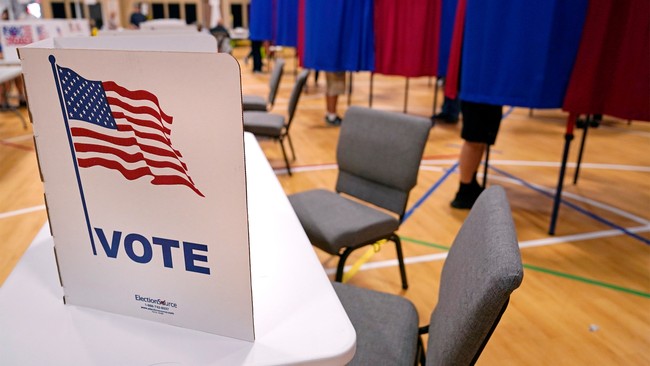
Nebraska’s high court has agreed to hear a challenge to a directive by the state’s Secretary of State Bob Evnen, which says a state law allowing people convicted of felonies to vote is “unlawful and unconstitutional.” The case, brought by the American Civil Liberties Union (ACLU) on behalf of three Nebraskans, came after Evnen told elections officials to begin rejecting the voter registrations in mid-July:
via the AP:
Nebraska’s top election official has no authority to declare unconstitutional a state law that restores the voting rights of those who’ve been convicted of a felony, a lawyer for the American Civil Liberties Union told the state Supreme Court on Wednesday.
ACLU attorney Jane Seu said it was Secretary of State Bob Evnen’s order last month for county election officials to reject the voter registrations of those with felony convictions that is unlawful and unconstitutional. Citing legal precedent, Seu said only the Nebraska Supreme Court can determine whether a state law is unconstitutional.
The report continued:
The ACLU sued last month on behalf of three Nebraska residents — a Democrat, a Republican and an independent — who would be denied the right to vote under Evnen’s directive. Because Evnen’s move comes only weeks ahead of the November election, the ACLU asked to take the lawsuit directly to the Nebraska Supreme Court, and the high court agreed.
Evnen’s order could keep 7,000 or more Nebraska residents from voting in the upcoming election, the ACLU has said. Many of them reside in Nebraska’s Omaha-centered 2nd Congressional District, where both the race for president and Congress could be in play.
But, Evnen’s directive on the voter registrations didn’t come out of the blue. He was pushed by the Legislature passing a new law earlier in 2024:
Evnen’s order came after the Nebraska Legislature passed a law, often referred to by its bill number LB20, earlier this year that immediately restores the voting rights of people who’ve successfully completed the terms of their felony sentences. The order was made July 17 — the same day state Attorney General Mike Hilgers issued an opinion saying the new law violates the state constitution’s separation of powers.
Nebraska AG Hilgers made a similar directive, which found LB53, a 2005 state law “that restored the voting rights of people with felony convictions two years after they complete terms of their sentences” unconstitutional.
Here are some arguments from each side in front of the state Supreme Court:
“The secretary here made a unilateral determination on his own to declare our statutes unconstitutional,” Seu told the justices. “The court should correct this overreach, issuing a writ as soon as possible to give Nebraska voters the clarity they need before this year’s election.”
Nebraska Assistant Attorney General Eric Hamilton countered that Evnen swore an oath to uphold the state constitution and has a duty not to implement laws that he believes are unconstitutional.
The court’s decision on the Evnen directive will need to happen fairly quickly, to stay ahead of state deadlines for registration:
The high court is expected to rule before the final deadline to register to vote in the November election. There are several deadlines for registering by mail, online or through a third party. The last day to register to vote is Oct. 25 and must be done in person.
This is a developing story, so RedState will provide updates as they become available.
